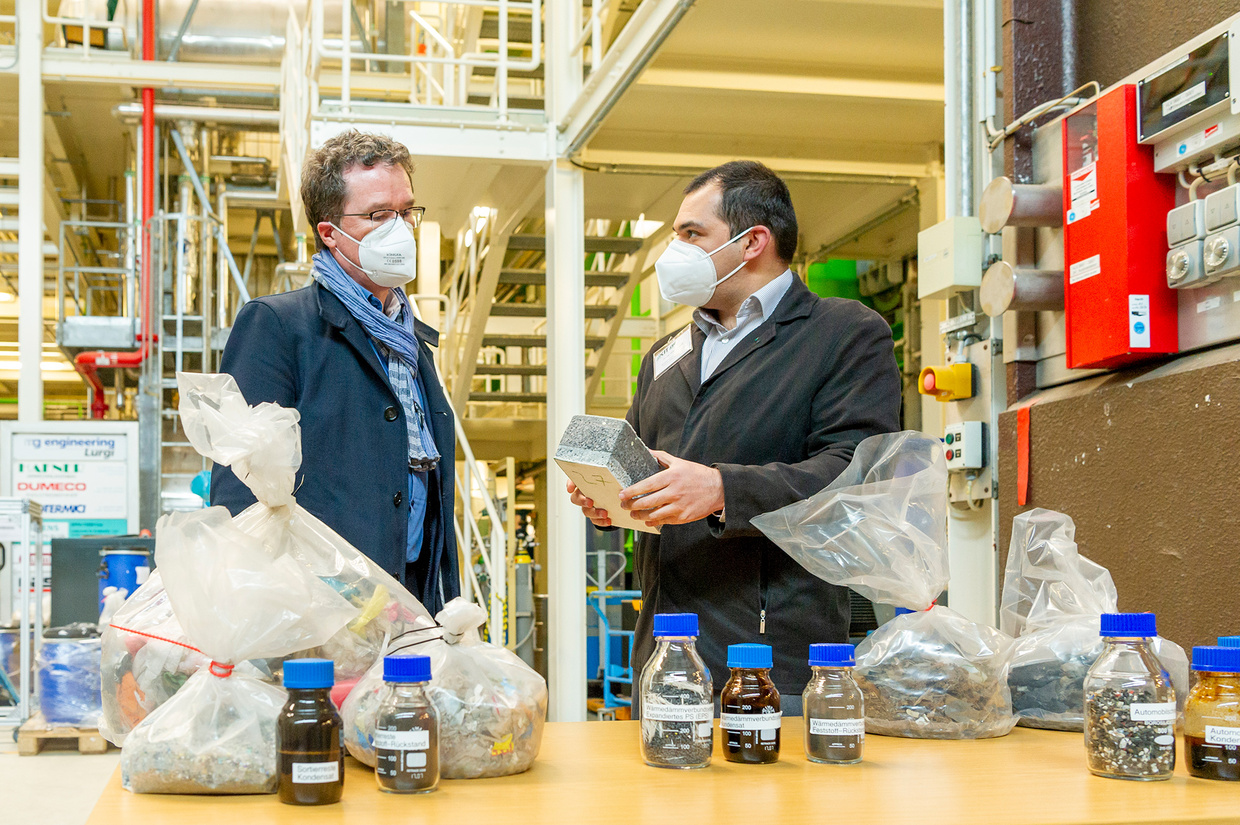Plastics Recycling & Circular (Carbon) Economy

Mr. Harald Ebner, Member of the German Parliament and Chairman of the Committee on the Environment, Nature Conservation, Nuclear Safety and Consumer Protection visited KIT on March 31, 2022. In a discussion with scientists, Mr. Ebner informed himself, on the current context of the Ukraine crisis, how the dependence on fossil raw materials, such as oil, natural gas, and coal, can be overcome quickly.
On the one hand, this can be achieved by using biomass and carbon dioxide as a carbon source in industrial production processes, since today's industrial value networks are almost entirely based on fossil carbon. On the other hand, the carbon cycle must be closed within the framework of a circular economy. KIT is researching the technologies required for this:
- At the Carbon Cycle Lab we are researching the chemical recycling of mixed plastic waste
- At the bioliq® pilot plant, we are researching how fuels and chemical feedstocks can be efficiently produced from residual biomass
- At the Energy Lab 2.0 , we are researching various technologies for storing renewable electricity in the form of chemical energy carriers
The extraordinary importance of plastics recycling is due to the following reasons: Few of today's products are made of only one type of plastic, which could be recycled by simple mechanical collection by type. The processing of multiple types of plastics with additives for specific functions in laptops, cars, packaging and construction plastics makes it necessary to separate them back into their basic chemical building blocks. Pyrolysis is a chemical recycling process that converts plastic waste into gaseous, liquid and solid products in an inert atmosphere and at elevated temperature to replace fossil petrochemical feedstocks. So far, only a very small part of the world's annual plastic production (> 350 million tons) is actually recycled, therefore these techniques are crucial for a Circular Carbon Economy to implement the European Green Deal and become climate neutral by 2050.
